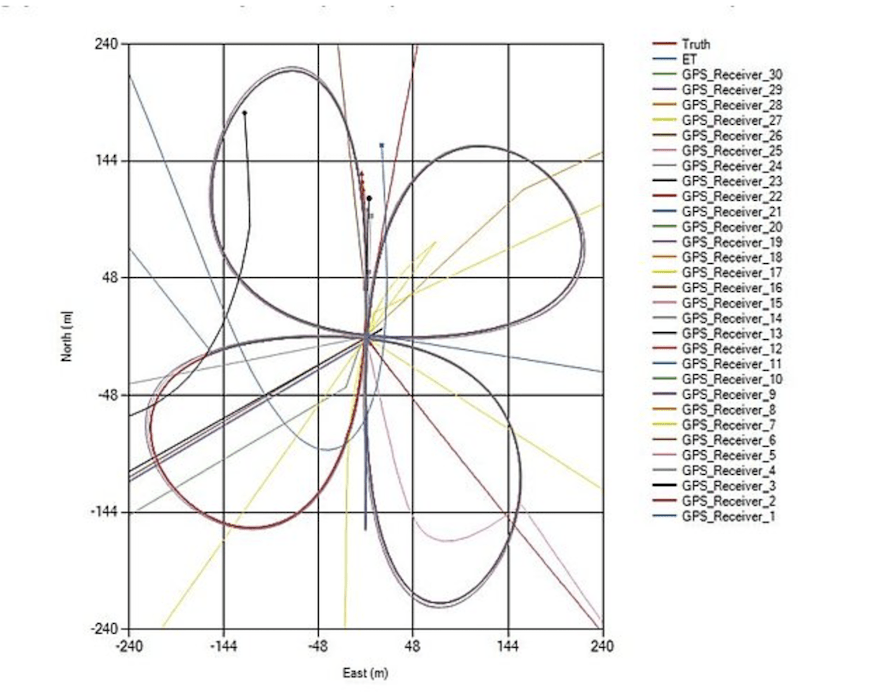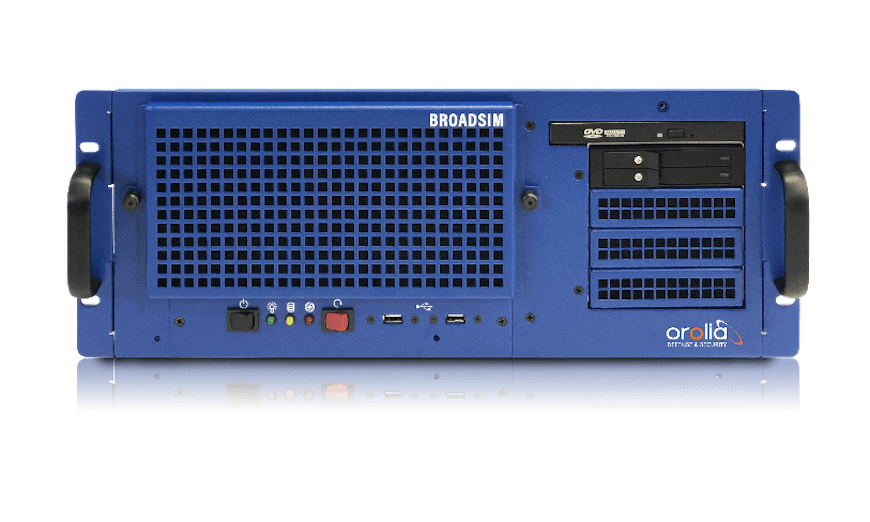The U.S. Department of Defense awarded a $1.7 million contract to Orolia Defense and Security for multiple BroadSim advanced GPS simulator systems for testing facilities and field test assets.
The new simulator systems will enable testing of widely deployed military GPS receivers, which are integrated into air and ground-based positioning, navigation and timing (PNT) systems. BroadSim will be leveraged with Orolia’s PANACEA test suite, currently utilized by the U.S. military to conduct automated testing and analysis for PNT system performance, vulnerabilities, and more.
A software-defined simulator powered by Orolia’s Skydel GNSS simulator engine, BroadSim creates advanced jamming and spoofing scenarios with navigation warfare (NAVWAR) testing in mind. It supports high dynamics, jamming, spoofing, and encrypted military codes. It can simultaneously simulate multiple constellations including: GPS, GLONASS, Galileo, Beidou, and QZSS.
BroadSim supports diverse test methods and environments such as a laboratory setting, or an over-the-air field test event. BroadSim can be configured to support rapidly-changing military tasks requiring laboratory testing one day and field testing the next. The product features four independent RF outputs, removable drives, and software-defined architecture.

Panacea is an autonomous GNSS performance and threat environment simulator system designed to control simulation hardware and collect data from up to 32 GNSS receivers simultaneously. It manages all receiver communications and then standardizes the output data into human readable .csv files. PANACEA Supports over 100 GNSS receivers and is compatible with many common receiver brands, including but not limited to Collins Aero, Garmin, GPS Source, L3T, Novatel, Raytheon, Trimble and uBlox.
The U.S. military and other federal agencies including the Department of Homeland Services host several test events per year where industry partners are invited to participate, such as GPS Testing for Critical Infrastructure (GET-CI). In April, the DHS Science and Technology Directorate announced such an event for critical infrastructure owners & operators and GPS equipment manufacturers to test their equipment against GPS spoofing, to take place later this year.
In February the White House issued a PNT Executive Order, giving the federal government a year to develop and test profiles for the responsible use of space-based positioning, navigation and timing (PNT) — better practices that it must then incorporate into federal contracting requirements for critical infrastructure suppliers. The executive order implementation is now rolling out, with the first deadlines coming in August. For the 2021 federal fiscal year, the U.S. Army alone budgeted more than $275 million towards Assured PNT Research, Development, Test & Evaluation.






